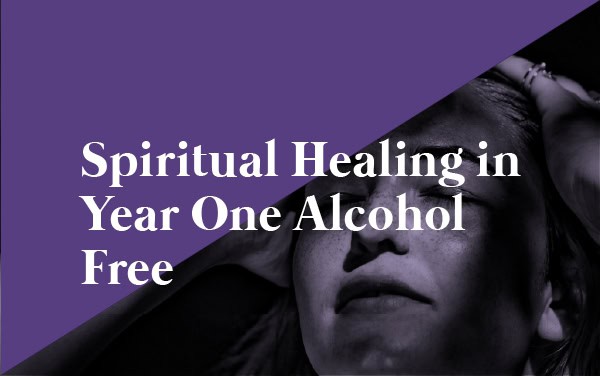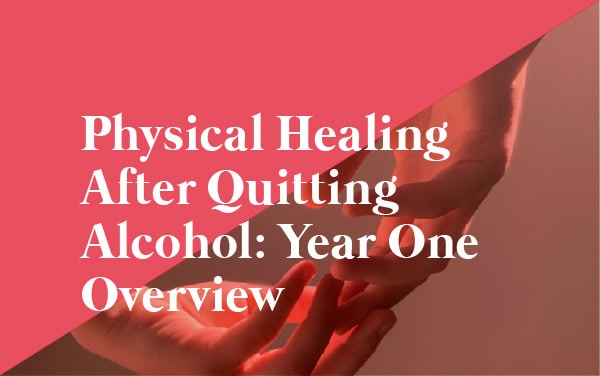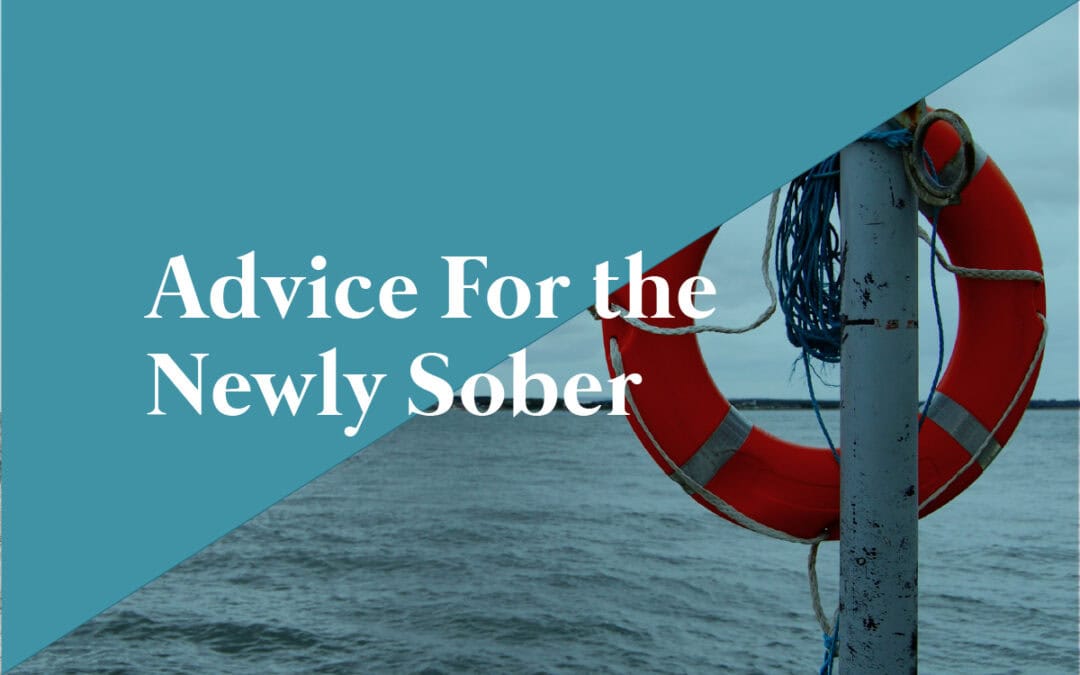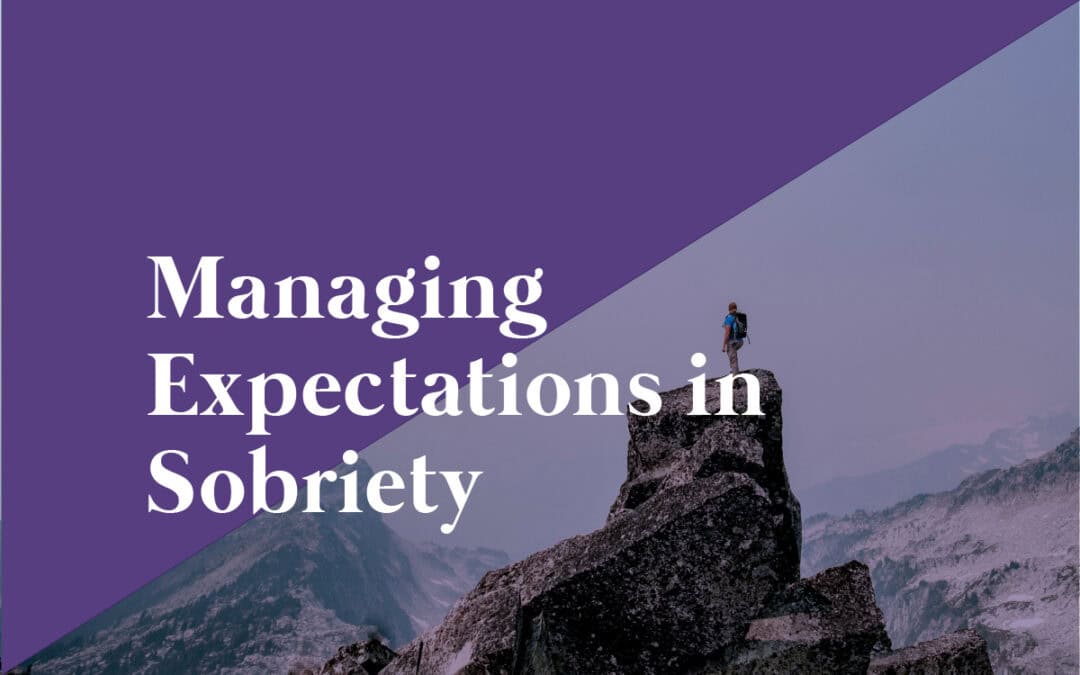
by RE Helper | Dec 15, 2025 | Alcohol Free, Blog, Helpful Tips, Uncategorized
Today’s blog entry is from Sher Bailey. Sher is a member of Café RE.
It’s Never Too Late to Quit Drinking: Better Late Than Never
By: Sher Bailey
Now seven months sober, I ask the question: How did I quit drinking? After trying so many things for so many years, what finally worked? I used to wonder if it was too late for me, but I’ve learned it’s never too late to quit drinking. While I’m not sure of the answer, I am hoping others on the sobriety journey can be helped by my suggestions. I am surprised at how many things I tried.
Listening to podcasts
Starting in 2015, I listened to thousands of podcasts from countless sources. No surprise that Paul’s Recovery Elevator was one of my first and still my favorite. A few years later, I started listening to Rachel Hart’s Take a Break from Drinking and more recently Deb Master’s Alcohol Tipping Point. I am in the habit of listening to podcasts while walking/jogging every day. Some times, I keep my Air Pods in while I run errands or make dinner.
Reading quit lit
I love to read, and I focused on my favorite subject: sobriety. I read Paul’s Alcohol is Sh!t, Holly Whitaker’s Quit Like a Woman, Byron Katie’s The Truth Behind Addiction and Laura McKowen’s We are the Luckiest and Push Off From Here. (I highly recommend the audio versions of both of Laura’s books Her story is full of pain and vulnerability, and her voice is too.) You name it, I read it. Seriously.
Therapy
For years, every time I walked in to a physician or therapist office the first words out of my mouth were “I drink every day and often too much.” I usually left with only the suggestion that I cut back or quit, but no real ideas on how. I tried two therapists who said they would use Eye Movement Desensitization and Reprocessing (EMDR) to address childhood trauma and the resulting depression and anxiety. I hoped by dealing with the underlying causes, my urge to drink would subside. But rather than experimenting with EMDR, I ended up doing talk therapy, a continuation of what I’d done off and on for decades.
Meditation/Hypnosis
Wise Monkey Way and Hypnozio are apps that talk you through meditations and hypnoses to curb the urge to drink. I listened to the Hypnozio recordings every day upon awakening for several months. But there was no immediate result. In addition to reading Holly Whitaker’s Quit Like a Woman, I listened to her 30 Days to a New Relationship with Alcohol on Audible. In this, Holly provides a 5-minute message or mantra that I listened to each morning and then, for the remainder of the day, thought about or meditated on. The messages include “I am allowed to say no” and “I allow myself to be surprised.” My very favorite of the series: “A part of me knows how to do this.”
My family
I can’t leave out the fact that in the past several years, my two adult sons and my husband got sober. At first their sobriety made me dig in with my drinking — just because they were now sober, didn’t mean I had to be.
Their sobriety planted seeds in me, even when I didn’t realize it. It reminded me that it’s never too late to quit drinking.
When you least expect it
And then one day, just before my 71st birthday (that’s right, 71), I realized I was no longer interested in drinking. That moment taught me it’s never too late to quit drinking. It was a Sunday, and the night before I’d had two or three vodka/sodas, which was a minimum for me. But when I went to bed, I experienced the spins and only avoided getting sick by going to sleep. I’ve never looked back. My first thought every morning is: I am grateful. Thank you, thank you, thank you.
Other than when I was pregnant or taking a break for a few weeks here and there, I drank daily for 50 years. I had begun to feel that it was too late for me to quit. Besides, almost everyone I’d met or read were much, much younger than me. If that’s you, I’m happy that you will quit drinking with so much of your life ahead of you.
Everything counts
So what worked? I think it was everything. Convinced that hypnosis or therapy or all the other activities weren’t helping, I backed off even trying. And lo and behold, the cycle stopped.
I can’t say every day is easy but most are. When I think about having a drink, I play the tape forward, as so many people have suggested, and realize I don’t want to feel bad the next day because I so much enjoy waking up earlier, being fully-rested and ready for the day. Now I’d like to help others, no matter how young or old, enjoy sobriety too.
As in life, nothing you are doing or have done is a waste. Every podcast you hear, every word you read, every day you focus on drinking less or not at all holds meaning. It truly is never too late to quit drinking.
Because, after all, part of you knows how to do this.

by Kerri MacFarlane | Oct 15, 2025 | Alcohol Free, Blog, Helpful Tips, The first Year
Spiritual healing after quitting alcohol can be subtle, surprising, and deeply meaningful. It’s also the focus of Part 3 in our three-month series on the healing that takes place in your first year alcohol-free.
In Part 1 we explored physical healing, and in Part 2 we covered mental healing. Now, we’re shifting to something less tangible but equally powerful—your connection to self, others, and the world around you.
Let’s dig in.
🌱 Spiritual Healing After Quitting Alcohol: What May Happen in Week One
- For many, nothing profound happens immediately. That’s normal.
- But you might have had a moment before your last drink when time seemed to pause—a flicker of presence that let you really see where alcohol was taking you.
- That moment of clarity, however fleeting, may have been the start.
🍃 First Month of Spiritual Healing After Quitting Alcohol
- Your intuition might quietly peek out and ask, “Is it safe to return yet?”
- You may feel a pull toward nature—a walk in the woods, leaning on a tree, or just sitting still under the sky.
- You might experience a few moments of pure gratitude—not for things, but for being.
- Even something simple, like watching a bird or a breeze in the trees, might hold your attention longer than usual.
🌌 Spiritual Growth and Awareness in Months 1–6 Alcohol-Free
- Synchronicities start happening—those “too weird to be coincidence” moments.
- You begin to feel the emotions of others more deeply, maybe even animals or the earth itself.
- You start listening to your intuition and trusting it.
- Your connection to something greater than yourself—something that doesn’t come in a bottle—starts to take root.
- Authentic wisdom bubbles up. Sometimes you surprise yourself with what you say (and yes, you sound a bit like a fortune cookie).
- You begin to sense the universe has a sense of humor—and you’re in on the joke.
✨ Spiritual Healing in Year One of Sobriety: A New Connection to Life
- You start to notice the spaces between life’s events, not just the events themselves.
- You realize this journey isn’t about becoming someone new—it’s about unbecoming what was never really you.
- Books like The Power of Now, The Dao, or The Artist’s Way might find their way into your life—often “accidentally.”
- You may pause before killing a spider, recognizing you’re both part of something shared.
- Decisions shift—you’re guided more by intuition than logic.
- Material things matter less. Moments matter more.
- You find yourself standing in awe of a canyon, a sunset, or a mountain—and feeling it all in a way you never used to.
- You begin seeking wisdom from ancestors, indigenous cultures, spiritual texts—things you once dismissed.
- You may start meditating or exploring your inner self.
- You discover flow states—where time disappears, and presence takes over.
🌊 Long-Term Spiritual Healing and Transformation in Sobriety
- You begin helping others heal, not by fixing, but by simply walking alongside them.
- You value silence and listening as much as speaking.
- Gratitude becomes your default mode—less about what’s missing, more about what already is.
- Creativity returns: music, poetry, painting, dancing—even spontaneous singing while cooking. (The Artist’s Way is a great guide here.)
- The dream world and waking world start to dance—you dream of an owl, then see one the next day.
- Your inner child reawakens—you feel playful, curious, light again.
- You feel less like a wave, more like the ocean. Life moves around you, but it no longer knocks you down.
- You stop labeling life events as “good” or “bad”—they just are, and somehow, they all fit.
- You begin to trust that everything is unfolding exactly as it should.
- And eventually, you realize:
What you’ve been searching for all along has been inside you the whole time.
🌟 The Healing Never Stops
So here we are—three parts, three layers of healing: physical, mental, and spiritual. This list? It’s just the beginning.
Sobriety doesn’t just take something away—it gives you back a connection you didn’t know you were missing. The healing deepens, the awareness expands, and the sense of peace grows.
Whether you’re a week in or years down the road—keep going. You’re not becoming someone new. You’re just remembering who you were all along.
📖 Missed a part? Catch up here:
👉 Part 1: Physical Healing After Quitting Alcohol
👉 Part 2: Mental Healing After Quitting Alcohol
#SpiritualHealingAfterQuittingAlcohol #AlcoholFreeLiving #SobrietyJourney #YearOneAF #EmotionalRecovery #SpiritualGrowth #SoberCurious #HealingInSobriety #RecoveryElevator #ThisIsAF #ConnectionIsTheOppositeOfAddiction

by Kerri MacFarlane | Aug 15, 2025 | Alcohol Free, Blog, Early Sobriety, Helpful Tips, The first Year
Physical Healing After Quitting Alcohol: Year One Overview
One of the most common questions I hear in Café RE is: What happens to your body after you quit drinking? While everyone’s recovery looks a little different, the first year is full of powerful changes. This post outlines what physical healing after quitting alcohol may look like in those early days, weeks, and months—highlighting how your body begins to repair itself as soon as you stop drinking. 🌸
🌬 Week 1: Detox & New Beginnings
During the first 7 days you may notice:
-
Withdrawal symptoms peak then begin to clear
-
Heart rate & blood pressure start normalizing
-
Digestive lining begins repairing
-
Sleep improves after the first few rough nights
-
Hydration and inflammation drop
-
Liver begins its amazing regeneration
-
Dopamine systems rebalance—you may even crack a real smile
-
Confidence returns—24 hours sober feels like a win
-
You feel more… human, emotional, alive
🌟 Month 1: The Glow Emerges
By week 4, many report:
-
Better liver function and bile production
-
Less puffiness and clearer skin
-
More stable weight and metabolism
-
Brighter eyes & improved immune response
-
Blood sugar regulation and less acid reflux
-
Boosted energy levels and reduced caffeine dependence
-
A noticeable glow and curiosity—“Maybe I could do a 5K?”
🧭 Six Months: Strength Returns
Around the six-month mark, your inner systems realign:
-
Reduced stress responses and cortisol levels
-
Increased neurogenesis—new brain cells 🧠
-
Cardiovascular improvements and steady liver enzymes
-
Better stamina—stairs don’t feel like a mountain climb
-
Friends may sense “something different”—your energy shifts
-
A true inner glow begins to radiate
🏃♀️ One Year: Full-Body Recalibration
In your first sober year, expect:
-
Ongoing liver regeneration
-
Lowered risk of heart disease and certain cancers
-
Balanced hormones and metabolism
-
Deeper, more consistent sleep
-
Improved insulin sensitivity
-
Skin renewal and a luminous complexion
-
A new steady state in weight and energy levels
-
A renewed spark in your eyes—healing really is in the gaze
🩺 External Evidence
Research from Johns Hopkins Medicine confirms this—especially the liver’s ability to recover from early alcohol-related injury, including fatty liver and alcoholic hepatitis, when drinking stops.
🤔 About Weight & Expectations
Weight change varies—some lose, others gain. Instead of stressing, let your body find its natural setpoint. Trust its wisdom and let reassurance follow: your body wants to heal.
🎧 Have You Listened to RE 531?
Tune into – RE 531: What to Expect When We Put the Bottle Down to hear Paul’s full intro and supporting research. Or join our insightful conversations in Café RE.
🔑 Final Takeaway
Healing starts with your body. It’s quiet, ongoing, and profoundly real.
That glow in your eyes? It’s the beginning of a lifelong recovery.

by Kerri MacFarlane | Jul 15, 2025 | Alcohol Free, Blog, Early Sobriety, Helpful Tips
Ego and Addiction Recovery: What’s the Real Danger?
When it comes to ego and addiction recovery, the real danger isn’t always what we expect. It’s not alcohol, sugar, artificial intelligence, or even nuclear weapons. According to Episode 486 of the Recovery Elevator podcast, the true threat lies much closer to home: our own ego.
The Ego and Addiction Recovery: Humanity’s Most Powerful Disruptor
From Buddhist teachings on Dukkha to the Christian concept of original sin, the ego has long been recognized as a source of internal conflict and suffering. In modern recovery language, it’s often called the “thinking mind” or “inner critic.”
So why is ego so dangerous today? Because it’s insatiable. It constantly seeks validation, comfort, distraction—and for many of us, that includes alcohol. The pursuit of more, more, more leads us to numb, isolate, and escape.
Understanding this makes it clear how ego and addiction recovery are connected: the ego thrives in denial and disconnection, while recovery invites humility and truth.
Addiction as the Ego’s Kryptonite: A Turning Point in Recovery
Here’s the paradox: while ego may drive addiction, addiction also becomes the very thing that exposes the ego’s destructiveness.
If you’ve hit rock bottom or faced repeated relapses, you’ve likely heard yourself say: “I can’t do this anymore.” That voice—the one whispering beneath the chaos—might just be your true self, beginning to break through the mental chatter.
Ego and addiction recovery share a unique relationship. When addiction pushes you to the edge, it creates an opening for awareness. As Michael Singer puts it in The Untethered Soul: “You are not the voice in your head—you are the one who hears it.”
How Ego and Addiction Recovery Reveal Our Shared Humanity
One of the most humbling truths in addiction recovery is this: it levels the playing field. In recovery spaces, doctors sit beside musicians, teachers beside former drug dealers. No one is better than anyone else in the room.
Why? Because addiction breaks the illusion of superiority. It reveals the inflated self-image for what it is. When you’re stripped down by struggle, you become open to connection, to surrender, and to healing.
And that’s why ego and addiction recovery work in tension—and in harmony. As the ego dissolves, room is made for peace.
Still on Day 1? Understanding Ego and the Recovery Journey
If you’re reading this and feel like you’re stuck on a hamster wheel of Day 1s, we see you.
Even if you’re still drinking, tuning into this podcast or reading this post is a powerful signal: you’ve chosen Life. That’s Door #2.
Breaking free from alcohol and the grip of the ego is rarely clean or easy. But every time you reach out for support, choose awareness, or show up in your community, you’re moving forward. One moment at a time.
Ask the universe for guidance. Ask for help. And when you do, pay attention to what shows up. That’s ego and addiction recovery in action.
Final Thoughts: Ego, Awareness, and Freedom in Addiction Recovery
As Paul shares in Episode 486, the real danger is not outside of us—it’s within. But that’s also where the healing begins.
Awareness dismantles the ego. Connection quiets the inner critic. Recovery breaks the illusion that we have to do it all alone.
Whether you’re on Day 1 or Day 1000, remember: you are not the thoughts telling you to drink. You are the one witnessing them. And that awareness is your superpower.
🎧 Listen to the Full Episode:
RE 486: The Most Dangerous Thing on the Planet
👀 Explore More:
Check out our post on advice for the newly sober for tips on what helps early in the journey.

by Kerri MacFarlane | Jun 15, 2025 | Alcohol Free, Blog, Early Sobriety, Helpful Tips
Advice for the Newly Sober: Insights from the Recovery Elevator Community
Embarking on a journey of sobriety is a brave and life-changing decision. Whether you’re just starting out or thinking about taking that first step, finding the right advice for the newly sober can make a huge difference. That’s why we asked our amazing Recovery Elevator community to share their best tips and words of encouragement for those just starting out.
If you’re newly alcohol-free or sober-curious, keep reading…this list is full of wisdom, compassion, and practical steps you can take today.
1. Take It One Moment at a Time
“If forever is too much to handle, quit for today. If today is too much, quit for an hour… You can do it.”
One of the most powerful pieces of advice for the newly sober is to avoid overwhelming yourself with the idea of “forever.” Sobriety is built one moment at a time, and that’s more than enough.
2. Trust the Urge to Quit: Early Advice for the Newly Sober
“If you’re thinking about quitting, you already know it’s time.”
Your intuition is one of your greatest assets. If something feels off with your relationship to alcohol, trust that feeling. This is advice for the newly sober that applies before you even take that first step.
3. Never Quit Quitting
“Recovery is a daily practice. If you slip, start again. One more day sober is better than none.”
No matter how many “Day Ones” you’ve had, each one counts. One of the most common pieces of advice is to keep showing up…even imperfectly.
4. Find People Who Get It
“Don’t do it alone. Community makes everything easier.”
Having a sober support network is crucial. Whether it’s a program, a group like Café RE, or just a few trusted friends, surround yourself with people who understand the journey.
5. Rebuild Your Routine with Intention
“Replace your drinking rituals with healthier ones. Create new routines you look forward to.”
This is incredibly helpful advice for the newly sober. Fill your time with positive habits, especially during the times you used to drink.
6. Be Gentle with Your Mind and Body
“Eat the food. Take the nap. Be gentle with yourself.”
Your body and mind are healing. Many people said the best advice for the newly sober was to treat early sobriety as a time to rest and reset. Sleep more. Eat well. Go easy on yourself.
7. Remember Your “Why”
“Write down all the reasons you want to quit. Look at them daily.”
Keeping your motivations front and center is one of the most powerful tools in sobriety. This advice can help you stay grounded and focused.
8. Let Other’s Stories Light Your Path
“Sobriety podcasts helped me realize I wasn’t alone.”
Listening to other people’s experiences helps normalize your own. Check out Recovery Elevator Episode 482 for more community-driven advice for the newly sober.
9. Grace Over Perfection
“Progress is not linear. Celebrate every small win.”
One of the most heartwarming pieces of advice for the newly sober is this: you don’t have to get it right every day. Just keep going.
10. Say It Out Loud, And Mean It
“Tell your people you’re done drinking. Make it real.”
Going public with your intention to quit…whatever that looks like for you…can help solidify your commitment.
Final Thoughts: Keep This Advice for the Newly Sober Close
Whether you’re on Day 1 or Day 100, the most important tips for early sobriety is this: you’re not alone. There is a vibrant, supportive community ready to walk with you…one moment, one choice, one day at a time.
Looking for more resources? Explore Café RE…a private, supportive space for people looking to live alcohol-free. And don’t forget to subscribe to the Recovery Elevator Podcast for more stories, tools, and inspiration each week.

by Kerri MacFarlane | May 15, 2025 | Blog, Early Sobriety, Expectations, Helpful Tips, Resources








